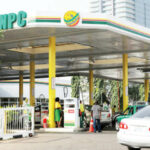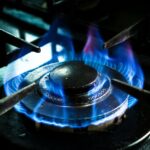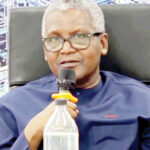Petrol marketers Monday gave more insight into the root causes of the lingering scarcity of the product across the country.
The Chairman of the Independent Petroleum Marketers Association of Nigeria (IPMAN), Ejigbo Satellite Depot, Akin Akinrinade, said most of the private depots in Lagos were not selling, while those selling were doing so at “outrageous prices.”
He said only the Nigerian National Petroleum Company Limited (NNPCL) could tell Nigerians when the current scarcity would end.
He said some stations were selling the product for as high as N750 and N800 per litre, stressing that those selling at N720 per litre must be dispensing the old stock.
- IsDB celebrates 50 years of development impact
- Do not turn NANS convention to an avenue for breeding future corrupt leaders
“Our depot, the satellite depot, which is the biggest in the South-West, has been abandoned and that is the only depot that can address supply issues in the South-West; but you go there now, it is like a forest,” he told one of our reporters.
IPMAN’s National Secretary, John Kekeocha, who spoke on Channels Television on Monday, however said many stations had started taking supply after the NNPCL had addressed the logistics challenge.
He said: “It is only NNPC Ltd that supplies the product. Based on the logistics, all other marketers take supply from them. The explanation they gave us was that there is a small problem with logistics which has been sorted.”
Speaking to Daily Trust, the Executive Secretary of the Major Oil Marketers Association of Nigeria (MOMAN), Mr Clement Isong, said: “The challenge really is availability of vessels to bring the products from where they are to the depots. So, there is a shortage of daughter vessels. That is what is causing the logistics challenges.
“Now, the NNPCL is hiring vessels and we are receiving more than we normally receive to kill the queue. So, I am very hopeful that if we continue to work like we have been working over this week, the queue will soon disappear.”
Isong dismissed insinuation of an impending price hike, saying: “We are MOMAN, our investment is very big and we don’t play funny games, we don’t take stupid risks.”
He charged Nigerians to shun panic buying, saying “Many people now buy more than they usually bought before thereby resorting in the long queues and putting pressure on the marketers.”
‘Real reason behind fuel queues’
A source close to one of the major fuel depot owners, who spoke in confidence, said they foresaw the scarcity over three weeks ago.
“I am privy to what is happening, at least at our level,” he said.
“It has been a while since we got supply. The truth is that there was no supply of petrol to us in the last three weeks and from what I heard, the federal government was not happy that the large chunk of what is being saved from subsidy removal is being spent on subsidy again, or under recovery if you will put it mildly.
“I was told that the government was paying N1.3 trillion every month to ensure steady supply and without price increase for Nigerians.
“However, in the last three weeks, the support from the government was not approved by the powers that be, on the grounds that the fuel already in Nigeria should suffice, pending when the Dangote refinery starts producing petrol in May. They said it is sustainable.
“Those in the position of authority were worried that the so-called gains were being eroded and something must be done, which is to ensure that the fuel for domestic consumption is produced locally, and not imported,” he said.
Efforts to get additional comments from the NNPCL were not fruitful yesterday.
When contacted on Sunday, the spokesman for the NNPCL, Femi Soneye, said: “Nothing has changed from the statement I sent out on Thursday (27th April, 2024). If there are disruptions in fuel distribution for two to three days, it typically takes double that time to return to normal.
“It should clear up shortly. One significant aspect is that we have product availability,” he said.
Work resumption disrupted in Lagos, Ogun
The fuel scarcity yesterday disrupted work resumption in some parts of the country, especially Lagos.
School resumption for third term academic activities was also disrupted in some parts of Ogun State as hundreds of students were not able to go to school due to the unavailability of public vehicles.
Our correspondent, who monitored school resumption, observed that many of them recorded low turnout of students.
Many students were seen trekking back home as they could not get taxis and motorcycles to convey them to their schools.
Keke NAPEP riders raise fares in Kano, Borno, Yobe
In Kano, passengers were made to pay higher fares for intra-city transportation.
A passenger, Aminu Sadiq, who shuttles between Bayero University old site and Zoo Road, said he paid N300 to a commercial tricycle rider instead of N200.
Transportation fare for routes like Rijiyar Zaki to Zoo Road, which was previously N300 is now N500. BUK’s new site to Hotoro was raised to N1, 000 from 500 naira.
Also, Keke NAPEP riders in Borno and Yobe states increased the fares by over 30 per cent. This was observed in Maiduguri and Damaturu.
A student of the Borno State University, Makinta Ali, said he trekked from home to the post office to save money that would cover the transport cost to school.
Musa Umar, a commercial Keke NAPEP rider, said they increased the fare by N50 “to keep afloat in the business.”
Officials warn petrol stations in Kwara
Elsewhere in North Central, the Kwara State Government Task Force on Monday paid unscheduled visits to some filling stations within the Ilorin metropolis over the lingering fuel scarcity.
The government said the move was part of the measures to address the situation.
The team warned the fuel stations against hoarding, which it said imposes “needless hardship on the masses”.
Speaking during the exercise, the leader of the task force and Chief of Staff, Prince Mahe Abdulkadir, told reporters that “The major marketers have fuel because we checked their pits.
“We want to call on the people to be patient and avoid panic buying because the federal government is not trying to increase the prices of fuel.”
At Rainoil Filling Station, Asa Dam and NNPC Gerin Alimi, the team confirmed that there was enough fuel in their pits and encouraged them to continue to sell to customers.
In their reactions, some of the motorists on queue appealed to the government to continue to monitor sales of fuel to check hoarding and reduce hardship brought by fuel scarcity in the state.

 Join Daily Trust WhatsApp Community For Quick Access To News and Happenings Around You.
Join Daily Trust WhatsApp Community For Quick Access To News and Happenings Around You.


